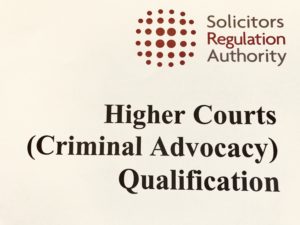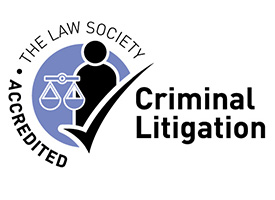Category Archives: News
The Sentencing Council is consulting on a new guideline for some of the most commonly prosecuted firearms offences. At the moment, guidance is to be found only in case law. This can lead to a challenging sentencing exercise.
The purpose of the guideline is to provide consistency in sentencing for firearms offences. The impact assessment does not suggest that any general increase in sentences is to be expected, although in many instances the Sentencing Council was met with a weak evidence base to evaluate this one way or the other.
If consistency is achieved, then you could expect some sentences to increase and some decrease. Overall average sentence lengths for firearms offences should remain broadly level. However, experience with some other guidelines does suggest that sentence length may creep upwards.
Overall, we would expect it to be easier to predict the likely sentence that a person might receive on a plea or after trial.
One interesting observation is concerning statutory minimum sentences for some offences:
“The Council was surprised to note that exceptional circumstances were being found in around two thirds of disguised weapons cases (section 5(1A)(a)) which appeared to run counter to the principle that in order to justify the disapplication of the five year minimum, the circumstances of the case must be truly exceptional.”
The Council, therefore, felt that:
“Setting out the principles in a guideline is likely to lead to them being more consistently applied, which in turn could lead to exceptional circumstances being found in fewer cases.”
It was also noted that recent changes to Crown Prosecution Service charging guidance for some firearms offences would in itself lead to fewer mandatory sentence cases being prosecuted.
You can read more about the prosecution guidance here.
Cases where we argued to avoid a minimum sentence for our clients can be found here
and here
Which firearms offences will the new guideline cover?
Eight guidelines will cover the following offences in the Firearms Act 1968:
- Possession, purchase or acquisition of a prohibited weapon or ammunition
- Possession, purchase or acquisition of a firearm, ammunition or shotgun without a certificate
- Possession of a firearm or ammunition by person with previous convictions prohibited from possessing a firearm or ammunition
- Carrying a firearm in a public place
- Possession of firearm with intent to endanger life
- Possession of firearm or imitation firearm with intent to cause fear of violence
- Use of firearm or imitation firearm to resist arrest, possession of firearm or imitation firearm while committing a Schedule 1 offence or carrying firearm or imitation firearm with criminal intent
- Manufacture or sell or transfer or possess for sale or transfer or purchase or acquire for sale or transfer a prohibited weapon or ammunition.
The consultation runs until mid-January, so it is likely to be Summer 2020 before any new guidelines take effect. That is not to say, however, that some judges will not have them in mind before then.
The link to the consultation can be found here.
Instruct a firearms offences expert
Although all of our lawyers are experienced in providing advice and representation in cases involving the unlawful possession of a firearm, our clients are also fortunate to be able to instruct firearms specialist Andrew Broome.
You can read about a successful defence of such a case here.
Firearms offences will always have the potential to be treated seriously by the courts upon conviction. As a result, if you are arrested or know that the police wish to speak to you about any offending arising from your possession of a firearm then make sure you insist on your right to free and independent legal advice.
The advantages of such early advice legal advice can be found here.
If you have already been interviewed or face court proceedings we can still make a real difference to the outcome of your case.
Legal aid may well be available to fund your defence at court.
We have offices across the East Midlands and will happily travel across the country to provide representation for all football related offences.

Alternatively you can contact us using the form below.














